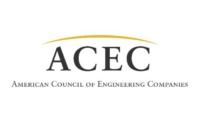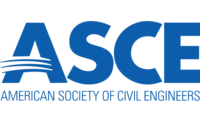WASHINGTON — On behalf of its more than 30,000 members, the American Public Works Association (APWA) has called on Congress to include infrastructure investment as a key component in the next COVID-19 recovery package.
APWA members have direct oversight and responsibility for all facets of infrastructure, including water, transportation, and emergency management. Communities of all sizes across the nation depend on public works for essential services, such as clean and safe drinking water, safe roads, and working with America’s first responder partners to safeguard the nation’s citizens. State and local governments are the foundation of the country, and the entities responsible for overseeing and funding public works. APWA advocates that any future legislation to combat the pandemic should include additional federal support for local governments, and recently APWA, along with 170 local partner organizations, specifically called for:
• $500 billion over two years of federal aid for local governments;
• Fair and direct funding allocations to each and every local government with no exclusions based on population;
• Equal funding overall for municipal governments and county governments; and
• Maximum flexibility for the eligible use of funds to address the budget consequences of the COVID-19 pandemic.
“As we seek to move the nation forward past the pandemic, investment in our nation’s critical infrastructure will be a key component, as it has been throughout our history, in boosting the economy and providing job opportunities to our citizens,” said William (Bill) Spearman, III, P.E., president, APWA.
As Congress works to craft the next COVID-19 recovery package, APWA urges Congress to include the following specific infrastructure investments:
Transportation
• With the Fixing America’s Surface Transportation (FAST) Act expiring September 30, 2020, now is an opportunity to complete a reauthorization bill early;
• APWA calls for the next surface transportation reauthorization to be implemented for at least six years and include federal investment above FAST Act enacted levels;
• APWA’s priority areas for the next reauthorization are funding, streamlining, and safety, and therefore strongly encourages Congress and the Trump administration to:
o Increase and index the federal motor fuel tax in the short-term to secure and sustain the Highway Trust Fund while also implementing a vehicle-miles traveled program, or similar mechanism, for the future where all infrastructure users of all modes pay into the system;
o Continue support for successful and proven safety programs, such as the Federal Highway Administration’s Every Day Counts, Traffic Incident Management, and the Transportation Alternatives Program;
o APWA strongly supports a multi-modal transportation system and calls for continued strong support and robust funding to federal programs, supporting increased investment in local bridges, and bridges not on the National Highway System, the High Risk Rural Roads Program, programs supporting operational improvements on highways, local streets, modernizing bus and rail transit, and for safe bikeways, pedestrian crossings and pathways, as well as airport improvements;
o Continue programs such as the Better Utilizing Investments to Leverage Development (BUILD) grants, and the Infrastructure for Rebuilding America (INFRA) grants;
o Continue the Transportation Infrastructure Finance and Innovation Act (TIFIA) program currently scheduled to expire with the FAST Act;
o Finally, it is important that there continue to be investment in transportation technologies and advancements to support a modernized transportation network.
Water
• Federal assistance to cover costs associated with moratoriums on water service disconnections, or reconnections of delinquent accounts, that water systems have implemented in response to the pandemic;
• Grant no- or low-interest loan funding to help support utility operations at a time when revenues are dropping dramatically;
• Inclusion of strong funding for utility providers through established water infrastructure investment programs like state revolving funds (SRFs), Water Infrastructure Finance and Innovation Act of 2014 (WIFIA), USDA Rural Development, the Bureau of Reclamation’s Title XVI-WIIN Water Reclamation and Reuse Program, and other water infrastructure grant programs to help fuel local economic activity while simultaneously strengthening America’s infrastructure.
Emergency Management
• Provide additional federal funding for the Federal Emergency Management Agency (FEMA) Disaster Relief Fund (DRF); and
• Provide additional federal funding for FEMA grants to assist state, local, territorial, and tribal governments in the efforts to combat the COVID-19 pandemic.
“Ensuring public works professionals have access to the funding necessary to pave the road to recovery is essential, especially during such a time when these investments will help to rebuild and strengthen the nation’s workforce. Infrastructure is the cornerstone upon which a successful economy, public health system and country are built, and we strongly urge direct funding allocations to these outlined infrastructure investments,” said Scott D. Grayson, CAE, CEO, APWA. For more information, visit www.apwa.net.



